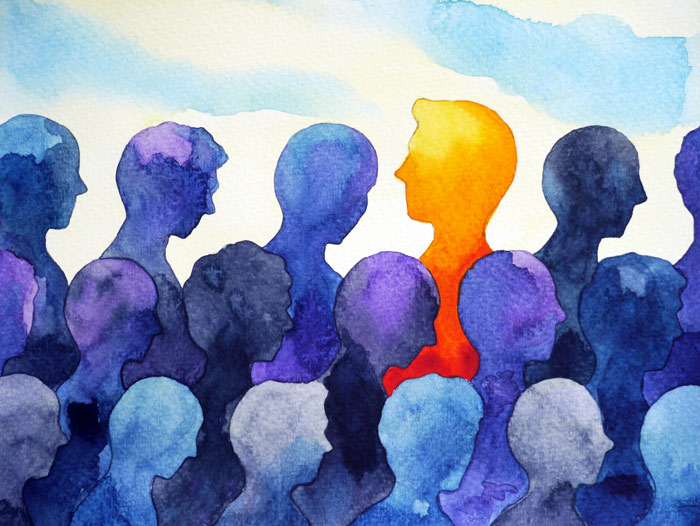Comfort Levels
Many people don’t feel comfortable sharing their business with others.
Regardless of what “oversharers” do on social media, other people prefer to keep personal matters to themselves. This attitude may be a deliberate choice, a reflection of how they were raised, or perhaps a sign that they don’t trust other individuals to value their thoughts and emotions.
However, when a person enters an inpatient rehabilitation facility or outpatient services for substance abuse, there’s a strong chance group therapy is part of the treatment plan. If you’ve never experienced it, the thought of it may be intimidating, unnerving—and maybe even a little annoying. All these feelings are valid, but it’s unlikely you’ll be able to opt out of participating.
So knowing how group therapy usually works and what benefits you’ll get from it can help ease any apprehensions, and allow recognition of the fact that even if you have to step out of your comfort zone, there are other people willing to help you get to where you need to be.
The Group Therapy Process
Group therapy is often an effective method employed to help people with any number of disorders, including, but not limited to:
- Substance use
- Major depression
- Panic or anxiety issues
- PTSD, loss, and other trauma
- Anorexia, bulimia, and binge-eating
- Obsessive-compulsiveness and social anxiety
The American Psychological Association (APA) believes one of the core benefits of group therapy is a “common identity and a sense of shared purpose.” APA has dozens of studies that support the success of this concept. Interacting within a similar peer group guided by one or two professionals reduces “stigma, isolation, and feelings of alienation among members.” One researcher noted that “members can be agents of change for each other, as seeing others’ progress can help group members realize they, too, can cope and feel better.” There’s also an essential model of accountability mirrored by other members.
When we listen to other people’s triumphs and challenges, the APA notes, these stories help us learn new ideas, reinforce better coping skills, and frame our individual issues within a new perspective. Hearing other stories also opens us up to diversity: “People have different personalities and backgrounds, and they look at situations in different ways. By seeing how other people tackle problems and make positive changes, you can discover a whole range of strategies for facing your own concerns.”
Typical Groups
Groups range in size, but the APA usually recommends approximately 5–15 patients at one time. Attendees often sit in chairs arranged in a circle to enable easier conversation, but some setups in outpatient centers are more like large living rooms with various types of seating.
Depending on the course of therapy, weekly or twice-weekly group sessions are held in conjunction with individualized therapy or stand-alone group encounters, and frequently meet for one to two hours.
Sometimes, group leaders direct conversations to specific topics or guide members to work on particular skills during the meeting. Other leaders create more of an open exchange, where members can choose to participate as little or as much as the guidelines allow. Confidentiality is a standard rule in group sessions and should be honored by all attendees to encourage the best participation. However, you still have a right to your privacy and should use common sense when deciding how much personal information to share.
When Group Therapy Might Be a Good Option
In addition to the benefits mentioned above, there are many other reasons to consider group therapy:
- Your individual counselor wants to expand your social and relational skills. If you’re working through environmental or emotional triggers such as abandonment, mistrust, unease when talking with people, discomfort stating your worth, and other issues, practicing in a safe group space helps prep you for real-world interactions.
- To help you prepare for more intensive family therapy. Since people in group therapy learn to respect others’ views, practice good listening techniques, and adapt to different ways of presenting thoughts and feelings without being confrontational, your experience with these sessions help you enter into family therapy with better skills for communication, understanding, and resolution.
- It’s often more affordable. Some therapists work with specific groups, such as individuals in recovery, as an extension of private practice. They’ll provide reduced rates to help more than one person at a time.
- You learn the value of both community interaction and individual accountability. As other people share their stories, you develop better connections while recognizing your individual contributions and responsibilities and actions—and why these characteristics are vital for your wellness.
Additionally, every 12-Step program—such as Alcoholics Anonymous, Narcotics Anonymous, Celebrate Recovery, and others—is based on a group support model. The intention is to demonstrate strength in numbers: a place where people feel they belong and are understood. You still have control over what you share, but you’re encouraged and bolstered by other people who want to move forward with sobriety. This means you have an opportunity to let down your guard and allow others to hear and understand you—as well as hold you to your purpose of recovery.
Willingway Surrounds You With Support
Our dedicated experts understand how everything feels new and different when someone enters recovery. Often, our clients believe they’re the only ones dealing with certain challenges, analyzing thoughts and past behaviors, and finding other methods of handling a life of sobriety.
We’ve designed our programs to use group therapy as a foundation of support, education, guidance, and fellowship. Our gender-based facility groups, as well as our continuing care community groups throughout Georgia and other areas in the Southeast cater to every person’s needs. You’ll always find people who understand and are willing to listen at Willingway.

